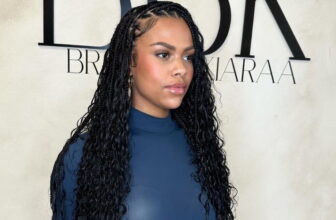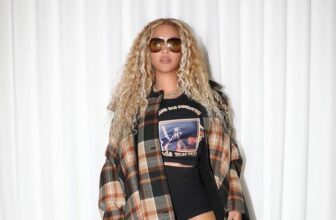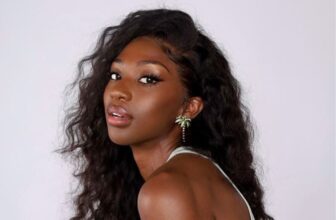For billions of people worldwide, beauty products are basic elements in their self-expression and public perception. Today, Black-owned beauty brands are embracing creative approaches to connect with these consumers across the globe. This further reiterates the reality that spotlights the profound influence of Black culture in the beauty industry. From shaping trends to introducing essential ingredients and beauty techniques, Black founders have left an indelible mark on the beauty landscape.
Despite accounting for more than 11% of beauty customers, Black brands only claim 2.5% of the total beauty industry revenues, as reported by McKinsey. Nonetheless, Black-owned beauty brands have taken a prominent role in prioritizing products tailored to a wide range of skin tones and hair types, effectively addressing the specific beauty and skincare concerns commonly experienced by people of color. These black entrepreneurs are expanding shade ranges, introducing custom skincare formulas, and solidifying inclusive teams behind the scenes.
Interestingly, these efforts extend beyond the cosmetics scenes and are contributing to a broader culture of inclusivity and diversity. This significant influence is gradually transforming an industry that has historically grappled with representation and catering to the unique needs of marginalized communities; a focus that counters the longstanding issue of limited shade ranges and narrow demographic targeting.
 Photo Courtesy
Photo Courtesy Uoma Beauty Foundation swatches
As typical of the currently evolving society, Inclusivity has become a core principle for many Black-owned beauty brands. This comes to light via their many products which challenge conventional beauty standards and celebrate all skin tones, hair textures, and body types. An iconic example is Rihanna’s groundbreaking entry into the beauty industry with Fenty Beauty in 2017, introducing a remarkable 40-shade foundation.
Similarly, Brands like UOMA Beauty, led by its Nigerian-born founder, Sharon Chuter, who is championing a powerful movement to challenge Eurocentric beauty norms through innovative makeup collections. UOMA Beauty rejects the outdated notion that beauty should conform to a single mold and instead celebrates individuality, diversity, and uniqueness.
Uoma weightless, soft matte hydrating foundation
As consumer preferences evolve, these brands are poised to play an even more prominent role in shaping the future of beauty. They are not just transforming the industry; they are forging a path toward a more equitable and representative future where beauty is celebrated in all its forms, transcending into broader aspects of society and the economy.
UOMA Beauty draws inspiration from its African roots, blending heritage with contemporary flair to create a truly refreshing aesthetic. Inclusivity and diversity lie at the core of this beauty brand, embracing people of all ethnic backgrounds, genders, sexual orientations, sizes, and ages. With a groundbreaking foundation collection boasting an impressive 51 shades, UOMA Beauty truly lives up to its promise of being suitable for all skin types.
This relativity grows a sense of ownership and belonging among their consumer base, inspiring a new generation of entrepreneurs from diverse backgrounds to enter the beauty industry, breaking down barriers, and promoting self-love, empowerment, and self-expression.
Uoma Beauty Double Take Skin Perfecting Highlighter
Innovation is another hallmark of Black-owned beauty brands. They create groundbreaking products, from inclusive foundation shades to specialized haircare for various textures. Many prioritize ethical and sustainable practices, aligning with growing consumer demands for socially responsible products.
Take, for example, Janell Stephens, CEO and founder of Camille Rose, who started her haircare journey from her kitchen. Her dedication to pure, organic, and natural ingredients led to a multi-million-dollar business, and she now gives back to the community through her foundation, supporting women of color and single mothers.
Camille Rose Rosemary Oil Hair and Scalp Cleanser
Collaborations between large-scale and small-scale Black-owned beauty brands have increased and continue to increase the visibility of the beauty sector and its potential for growth. Consumers are also becoming more attracted to brands that share their beliefs these days, which is driving the expansion of Black-owned beauty brands and altering the sector. The success tales that come from these initiatives motivate other black business owners from underrepresented backgrounds to pursue their goals, promoting economic empowerment and cultivating creativity.
Significantly, Black-owned beauty brands harness the power of social media and team up with influencers to extend their reach, amplifying their message and advancing education on skincare and haircare tailored to their specific demographic.
These brands also champion the cause of fair representation within the beauty industry, challenging stereotypes and biases while deconstructing the notion of superior beauty standards. Their ability to attract investments and secure funding solidifies their standing, paving the way for further growth.
In conclusion, Black-owned beauty brands are catalysts in the evolution of the beauty industry, championing inclusivity, diversity, and innovation. They extend their influence beyond products, promoting positive self-image, supporting underrepresented communities, and inspiring a new generation of beauty entrepreneurs.











